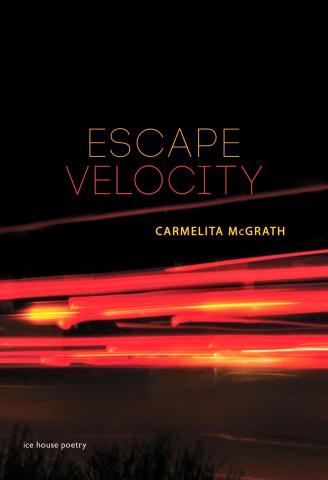
In each of these poems, and for that matter, in poems from Danielle Devereaux’s chapbook like “Mainland Man,” we get the impression that we’re being met with something authentic, something similar to the stress-laden utterances of the “big-voiced scullions” of Seamus Heaney’s youth discussed in the introduction to his Beowulf translation. When reading through “Old Crooked Fellow,” for instance, it’s hard not to think of Dan Taggert in “The Early Purges,” from Death of a Naturalist, and his Ulster-inflected insistence “Sure isn’t it better for them now” in reference to the kittens he’s just drowned in a bucket. Both poems employ cats as subjects in unusual ways, but again, it’s the stoicism we encounter as an almost inseparable companion to the related dialects that’s the true crux of these poems. Just as Heaney’s youthful speaker tries to convince himself that such lessons are crucial to his own emotional survival, the same can be said of the woman in Nowlan’s poem, or McGrath’s speaker in “Crooked Old Fellow,” and her attempt to deceive herself into believing that the cat’s disappearance from her life is welcome.
What we also encounter in McGrath’s collection is a kind of poetry that reads as almost entirely contrary to the earthy, vernacular-driven narratives she does so well. Poems like “Interstice,” “Dispersals,” and “Unsent Letter #5” are as restrained, accomplished, and high-mindedly literary as what we’re accustomed to encountering in the work of our most celebrated academic lyricists. Demonstrating that she is as adept at turning artful and intricate phrases as she is at accurately capturing the native speech patterns of her tribe, McGrath blindsides those new to her work with meditations like “as if absence / itself were a force of permanence,” or, in the same poem, her description of a suddenly vanished clapboard derelict:
Then, one day, gone, not even skeletal evidence
to frame the sky, not even a scattered
old board on the new, tidy driveway,
rolled gravel where the tangle
of goldenrod and aster had drifted
above a well-worn path.
In “Unsent letter #5,” too, we’re met with similarly adorned phrasing that is both elegant and precise: “Stillness for the first time in days; something bronzed / and grey and made of light has laid an overlay / on the maples and the rowan trees.” She does slip into sentimentality on occasion while in this mode (“Light: Variations” comes to mind), but that McGrath is as comfortable and skilled at the high-artifice of lyric poesy as she is at accurately rendering the idioms and cultural sensibilities of native Newfoundlanders really separates her as a pioneering Canadian talent in this respect. And as Danielle Devereaux’s collection clearly demonstrates, there are others as well who are determined to follow in her path.
Phillip Crymble is The Fiddlehead's Poetry Co-editor











Add new comment